Her first term in Congress led to an explosive start as she voted against U.S. involvement in World War I. After, she turned her efforts towards women's suffrage and child welfare. She participated in two important committees, the Committee on Women's Suffrage and the Public Lands Committee. Additionally, she supported the Raker's Proposal which was the start of the legislation that later influenced the 19th Amendment. Finally, after she left her term in Congress, she supported the Sheppard-Towner Maternity and Infancy Act which passed in 1921.
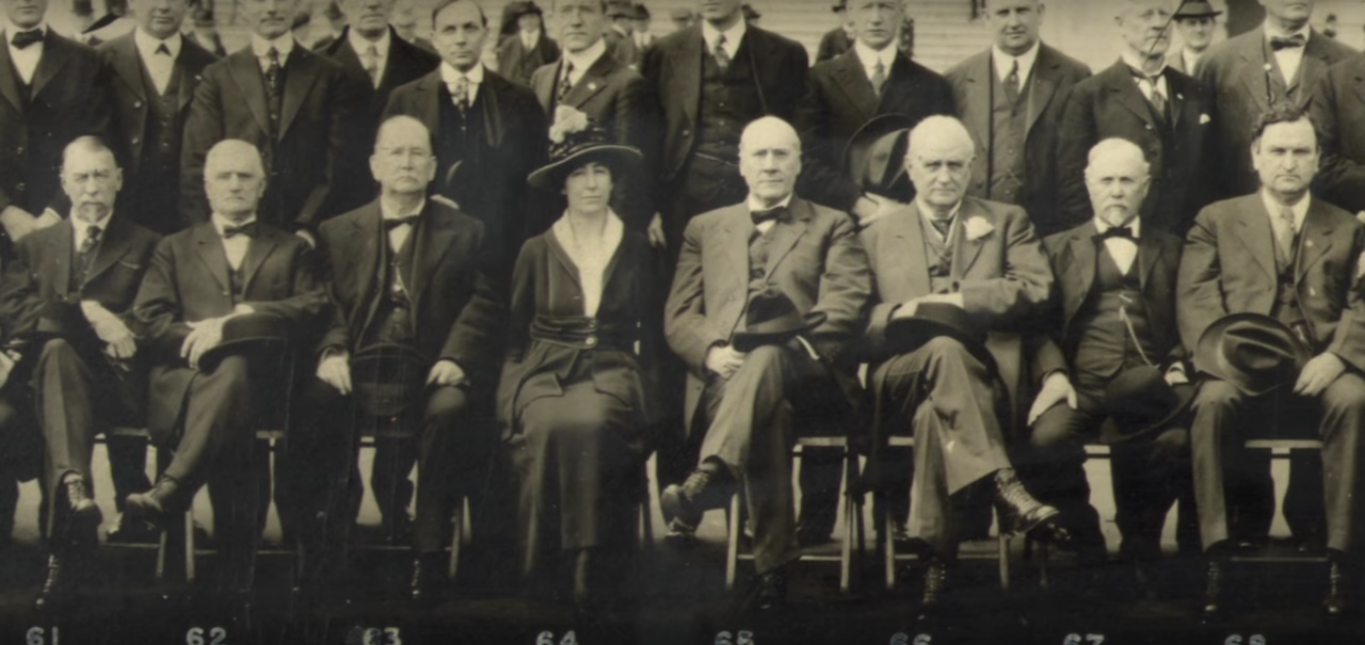
Jeannette Rankin with her colleagues.
Video from C-SPAN (Rep. Jeannette Rankin (R-Montana) 1st Woman in Congress)
Jeannette Rankin was very busy during her time in Congress. Only four days after she was introduced as the first female congressman, she and the rest of her colleagues voted on the U.S. involvement of World War I. Jeannette Rankin stunned the world as one of the 50 representatives to vote against U.S. involvement. While she was warned by her brother, Wellington, that this could wreck her career in government, she stood by her values and voted against war.
"Vote a man's vote." ~ Wellington Rankin
"I want to stand by my country, but I cannot vote for war. I vote no." ~ Jeannette Rankin
John E. Raker and Carrie Chapman Catt urged the House to create a committee on Women's Suffrage which had been harshly shut down by the Judiciary Committee. The House recognized the need for one with the help of Jeannette Rankin and the Committee on Women's Suffrage was officially passed on September 24, 1917, by House Resolution 12. Jeannette Rankin was a founding member of this committee which was later very important in guiding the 19th Amendment through the federal government. Her influence in the creation of the committee promoted her to the Ranking Republican, an honor usually given to the seniors of the House.
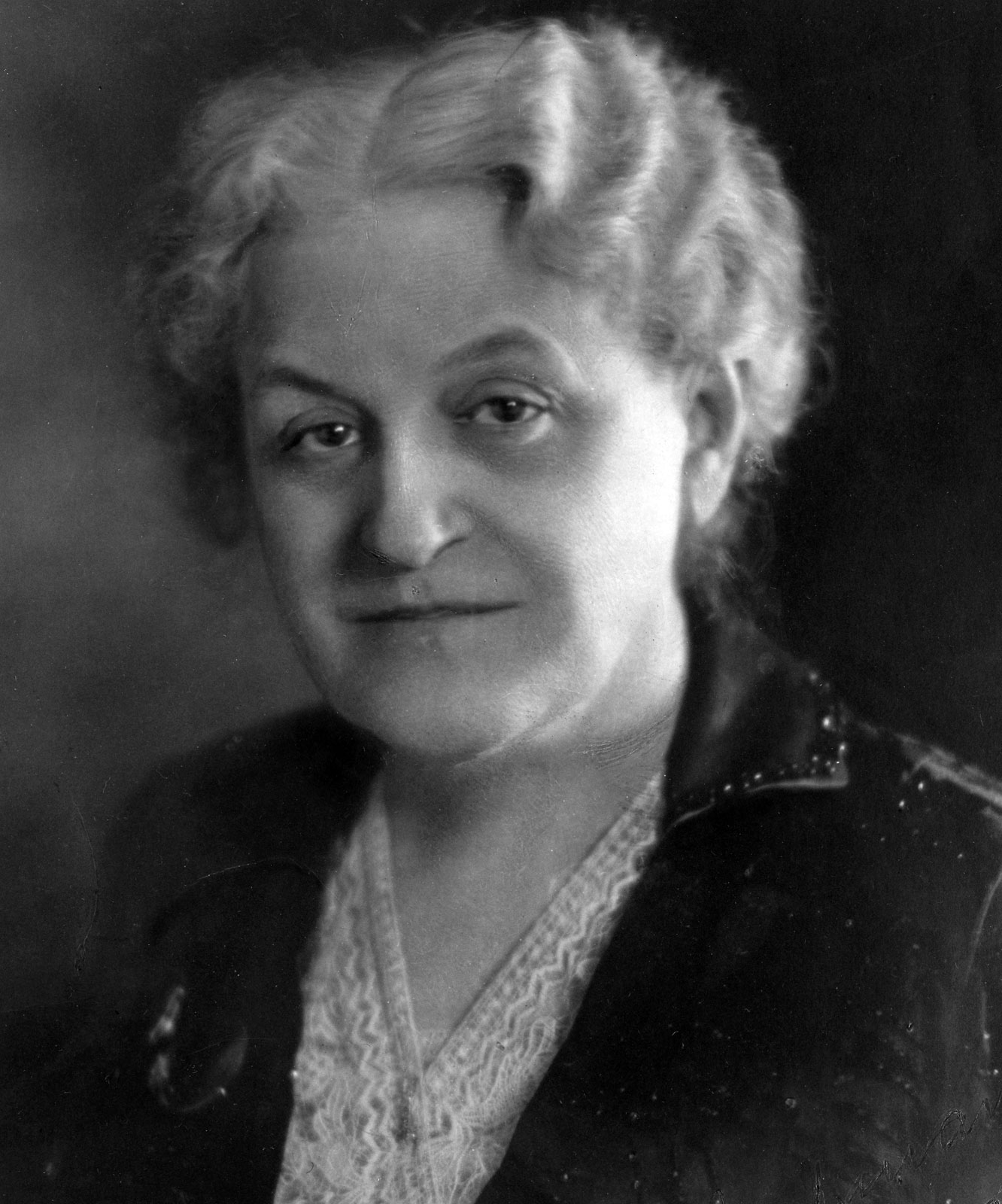
Carrie Chapman Catt
Britannica.com
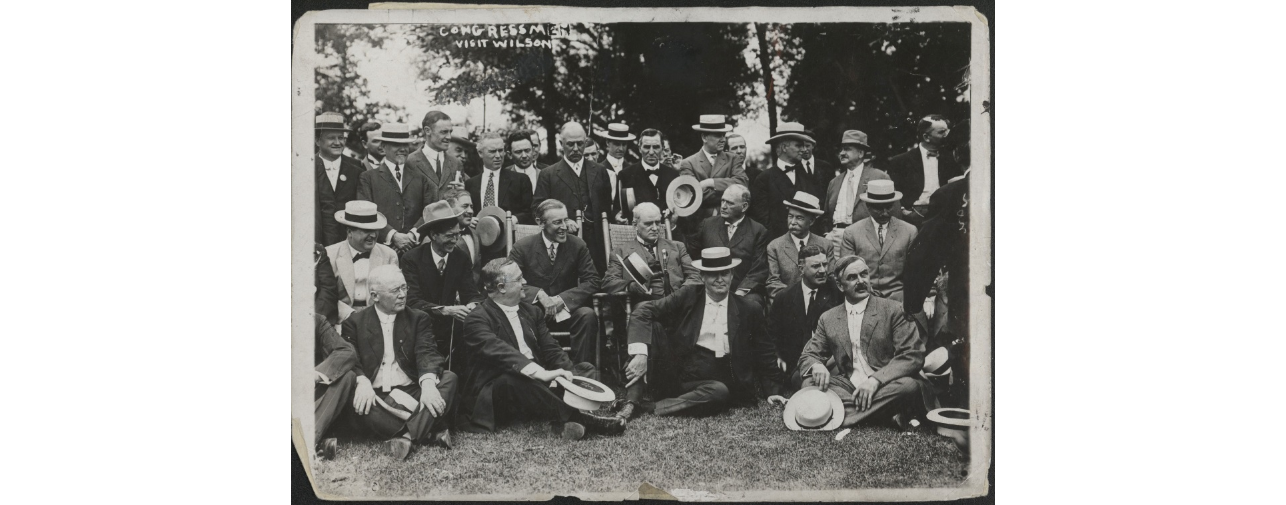
John E. Raker, a Californian Democrat. Seated bottom-right.
Collection of the U.S. House of Representatives
“We have as a Member of this body the first woman Representative in the American Congress. She will not be the last, Mr. Speaker.”
~ Edward W. Poe, the Rules Committee Chairman, speaking in favor of the Committee.
The troubling Judiciary Committee, which had dealt with all of the women's suffrage issues prior to the Committee on Women's Suffrage, had proposed a bill that would require a seven-year ratification. The Committee on Women's Suffrage strongly opposed this bill and was allowed to review it and report a new bill on January 10, 1918; this bill was later known as the 19th Amendment. On that day, Jeannette Rankin was asked to open the debate. Her inspiring opening was a significant factor for the new amendment that passed through the two-thirds majority in the House by a small margin, 274 to 136. Unfortunately, the Senate failed to pass the amendment and women would have to wait one more year for a national law allowing women the right to vote.
“Can we afford to allow these men and women to doubt for a single instant the sincerity of our protestations of democracy? How shall we answer their challenge, gentlemen; how shall we explain to them the meaning of democracy if the same Congress that voted for war to make the world safe for democracy refuses to give this small measure of democracy to the women of our country?”
~ Jeannette Rankin
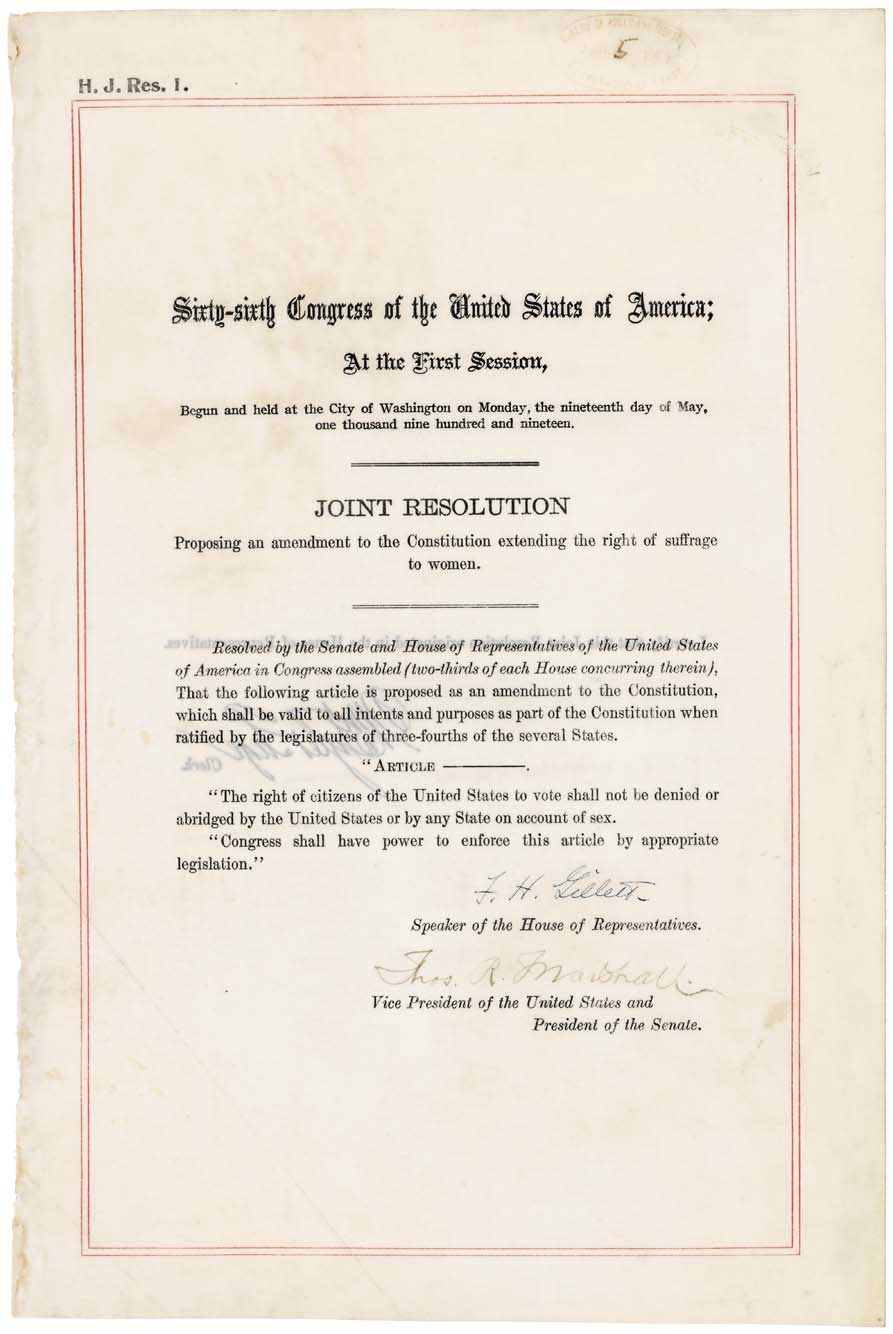
Raker's Proposal led to the writing of the 19th Amendment which didn't pass in 1918 but passed a year later.
Archives.gov
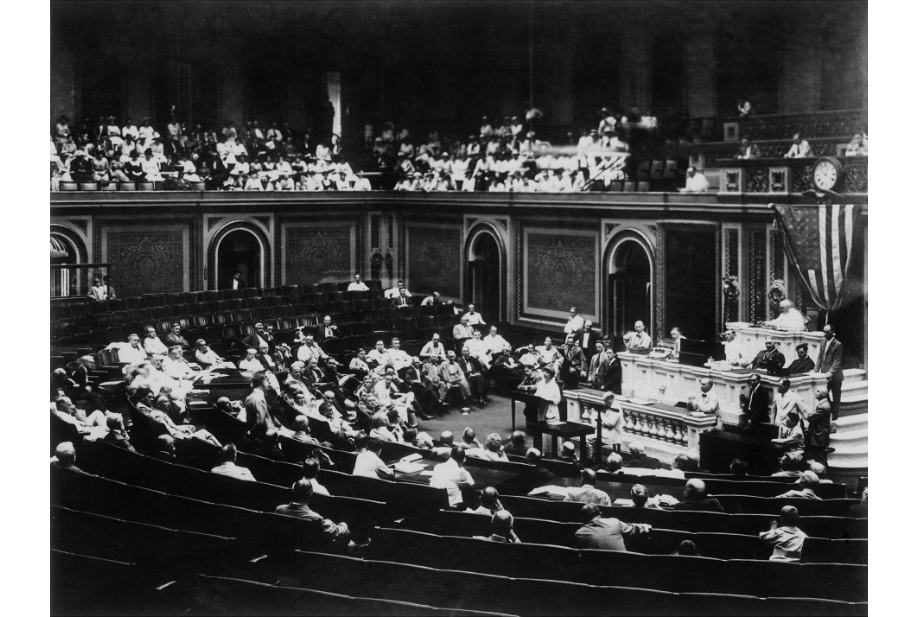
Jeannette Rankin on the floor of Congress, presenting her first speech. National Archives and Records Administration
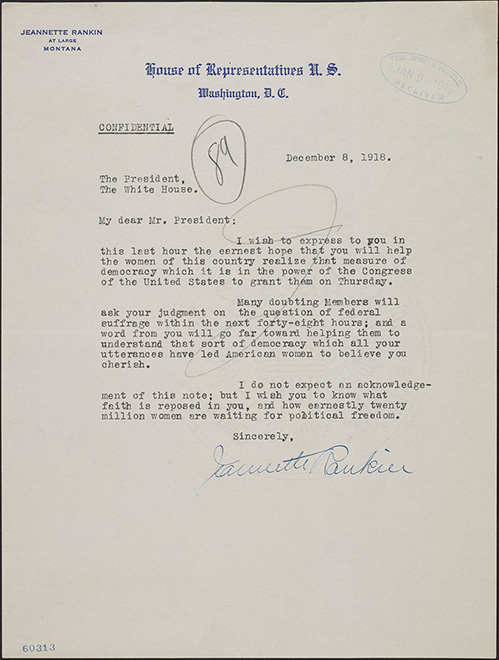
Letter from Jeanette Rankin to President Wilson asking for
him to influence any "doubting members". Wilson adressed
and endorsed the suffrage amendment the next day.
Library of Congress
Despite her many accomplishments during her congressional term, she wasn't reelected, at least until 1941...